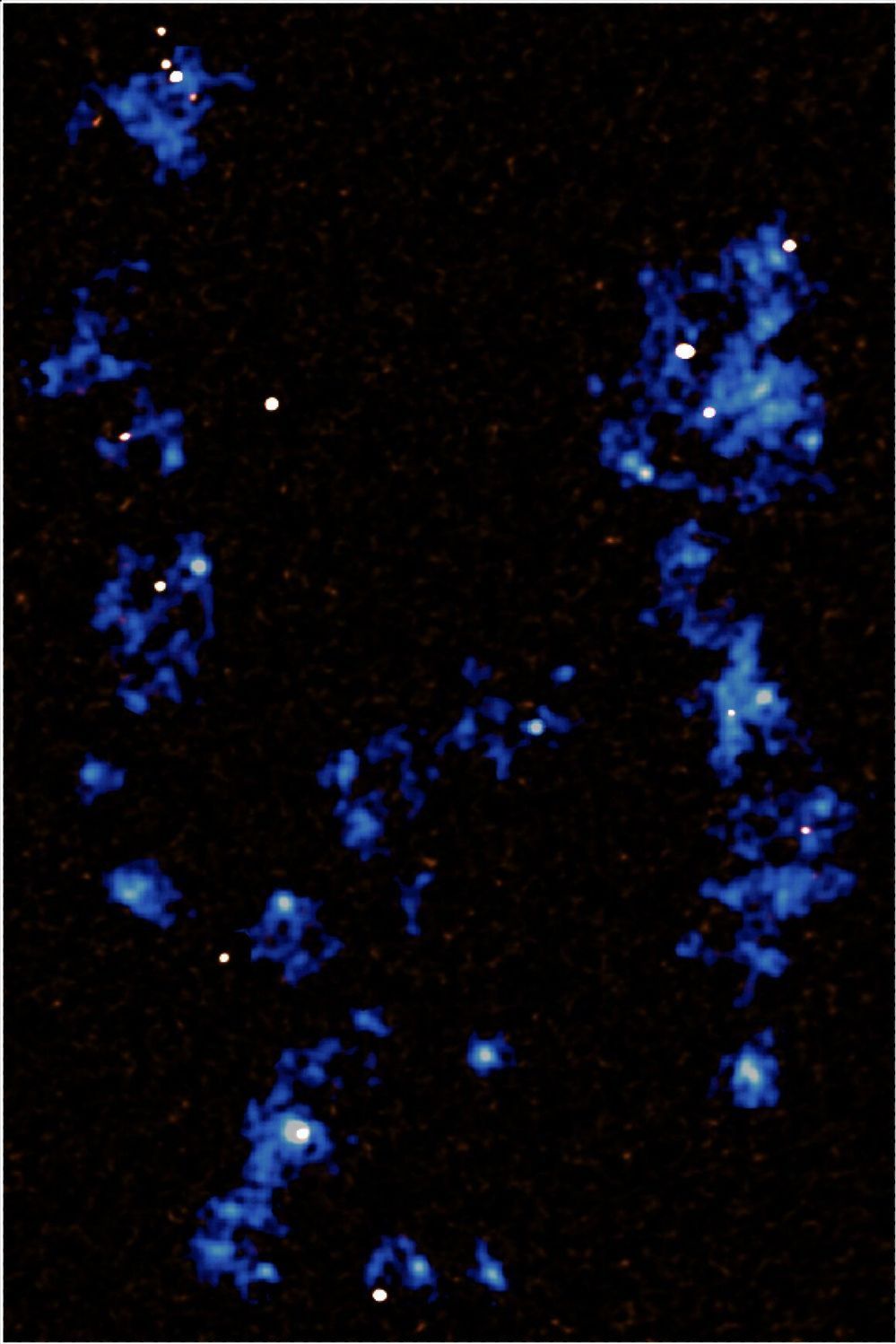An international group of scientists led by the RIKEN Cluster for Pioneering Research has used observations from the Multi Unit Spectroscopic Explorer (MUSE) at the ESO Very Large Telescope (VLT) in Chile and the Suprime-Cam at the Subaru telescope to make detailed observations of the filaments of gas connecting galaxies in a large, distant proto-cluster in the early universe.
Based on direct observations, they found that, in accordance with the predictions of the cold dark matter model of galaxy formation, the filaments are extensive, extending over more than 1 million parsecs—a parsec being just over three light years—and are providing the fuel for intense formation of stars and the growth of super massive black holes within the proto-cluster.
The observations, which constitute a very detailed map of the filaments, were made on SSA22, a massive proto-cluster of galaxies located about 12 billion light years away in the constellation of Aquarius, making it a structure of the very early universe.










Comments are closed.